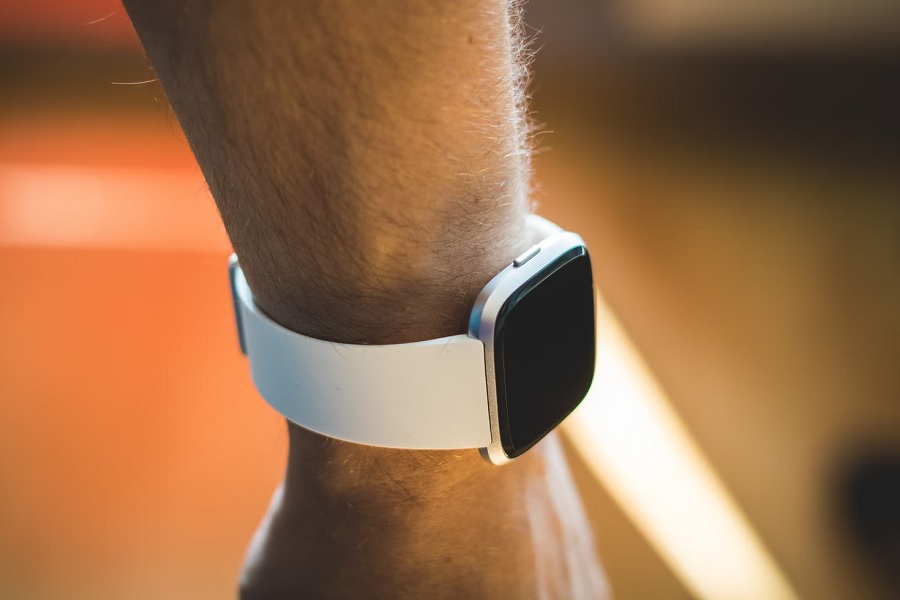Fitbit has reportedly started rolling out its newest health feature that detects atrial fibrillation (AFib). The report comes just weeks after the company received clearance from the United States Food and Drug Administration for its technology that uses a photoplethysmography (PPG) algorithm.
An update that utilizes Fitbit’s AFib detection technology has started to roll out on several devices on Monday, 9To5Google reports. The wearable devices expected to receive this feature are Fitbit Sense, Fitbit Versa 3, Fitbit Versa 2, Fitbit Versa Lite, and Fitbit Charge 5. Fitbit Luxe, Fitbit Charge 4, Fitbit Charge 3, and Fitbit Inspire 2. The same report noted that alerts of potential AFib will be delivered as “Irregular Heart Rhythm” notifications through the Fitbit app.
On a page on Fitbit’s official website, Fitbit users will find what the Irregular Heart Rhythm alert will look like. It will appear on the app’s notification panel with the messages, “We saw signs of an irregular rhythm that may be AFib in multiple readings.” Fitbit users will then be provided with suggestions on what to do next, including a recommendation to consult with their healthcare provider and a warning not to change their medication based on the device’s readings.
AFib is one of the most common types of irregular heartbeat or arrhythmia. Mayo Clinic says AFib is not usually life-threatening but it can lead to blood clots in the heart and increases the risks of stroke and heart failure, so it could require treatment. John Hopkins Medicine also says AFib affects more than 5 million adults in the U.S., while other research estimates up to 12.1 million people will be affected by this condition by 2030.
While AFib is typically detected by ECG reading, as mentioned, Fitbit leverages its PPG algorithm to detect irregular heartbeat. In an earlier blog post, the company said its technology was 98 percent accurate in detecting AFib episodes that were also confirmed through an ECG.
It is worth noting that Fitbit has had an ECG app for a while now. But it needs Fitbit users to interact with the device to monitor their heart activity. Fitbit’s AFib detection, on the other hand, will function in the background and will take readings even when the user is asleep.



 Elon Musk’s SpaceX Acquires xAI in Historic Deal Uniting Space and Artificial Intelligence
Elon Musk’s SpaceX Acquires xAI in Historic Deal Uniting Space and Artificial Intelligence  SpaceX Updates Starlink Privacy Policy to Allow AI Training as xAI Merger Talks and IPO Loom
SpaceX Updates Starlink Privacy Policy to Allow AI Training as xAI Merger Talks and IPO Loom  SoftBank Shares Slide After Arm Earnings Miss Fuels Tech Stock Sell-Off
SoftBank Shares Slide After Arm Earnings Miss Fuels Tech Stock Sell-Off  SpaceX Pushes for Early Stock Index Inclusion Ahead of Potential Record-Breaking IPO
SpaceX Pushes for Early Stock Index Inclusion Ahead of Potential Record-Breaking IPO  Alphabet’s Massive AI Spending Surge Signals Confidence in Google’s Growth Engine
Alphabet’s Massive AI Spending Surge Signals Confidence in Google’s Growth Engine  Nintendo Shares Slide After Earnings Miss Raises Switch 2 Margin Concerns
Nintendo Shares Slide After Earnings Miss Raises Switch 2 Margin Concerns  Global PC Makers Eye Chinese Memory Chip Suppliers Amid Ongoing Supply Crunch
Global PC Makers Eye Chinese Memory Chip Suppliers Amid Ongoing Supply Crunch  Anthropic Eyes $350 Billion Valuation as AI Funding and Share Sale Accelerate
Anthropic Eyes $350 Billion Valuation as AI Funding and Share Sale Accelerate  Jensen Huang Urges Taiwan Suppliers to Boost AI Chip Production Amid Surging Demand
Jensen Huang Urges Taiwan Suppliers to Boost AI Chip Production Amid Surging Demand  Nvidia, ByteDance, and the U.S.-China AI Chip Standoff Over H200 Exports
Nvidia, ByteDance, and the U.S.-China AI Chip Standoff Over H200 Exports  Baidu Approves $5 Billion Share Buyback and Plans First-Ever Dividend in 2026
Baidu Approves $5 Billion Share Buyback and Plans First-Ever Dividend in 2026  Nvidia CEO Jensen Huang Says AI Investment Boom Is Just Beginning as NVDA Shares Surge
Nvidia CEO Jensen Huang Says AI Investment Boom Is Just Beginning as NVDA Shares Surge  TSMC Eyes 3nm Chip Production in Japan with $17 Billion Kumamoto Investment
TSMC Eyes 3nm Chip Production in Japan with $17 Billion Kumamoto Investment  Nvidia Nears $20 Billion OpenAI Investment as AI Funding Race Intensifies
Nvidia Nears $20 Billion OpenAI Investment as AI Funding Race Intensifies  AMD Shares Slide Despite Earnings Beat as Cautious Revenue Outlook Weighs on Stock
AMD Shares Slide Despite Earnings Beat as Cautious Revenue Outlook Weighs on Stock 































